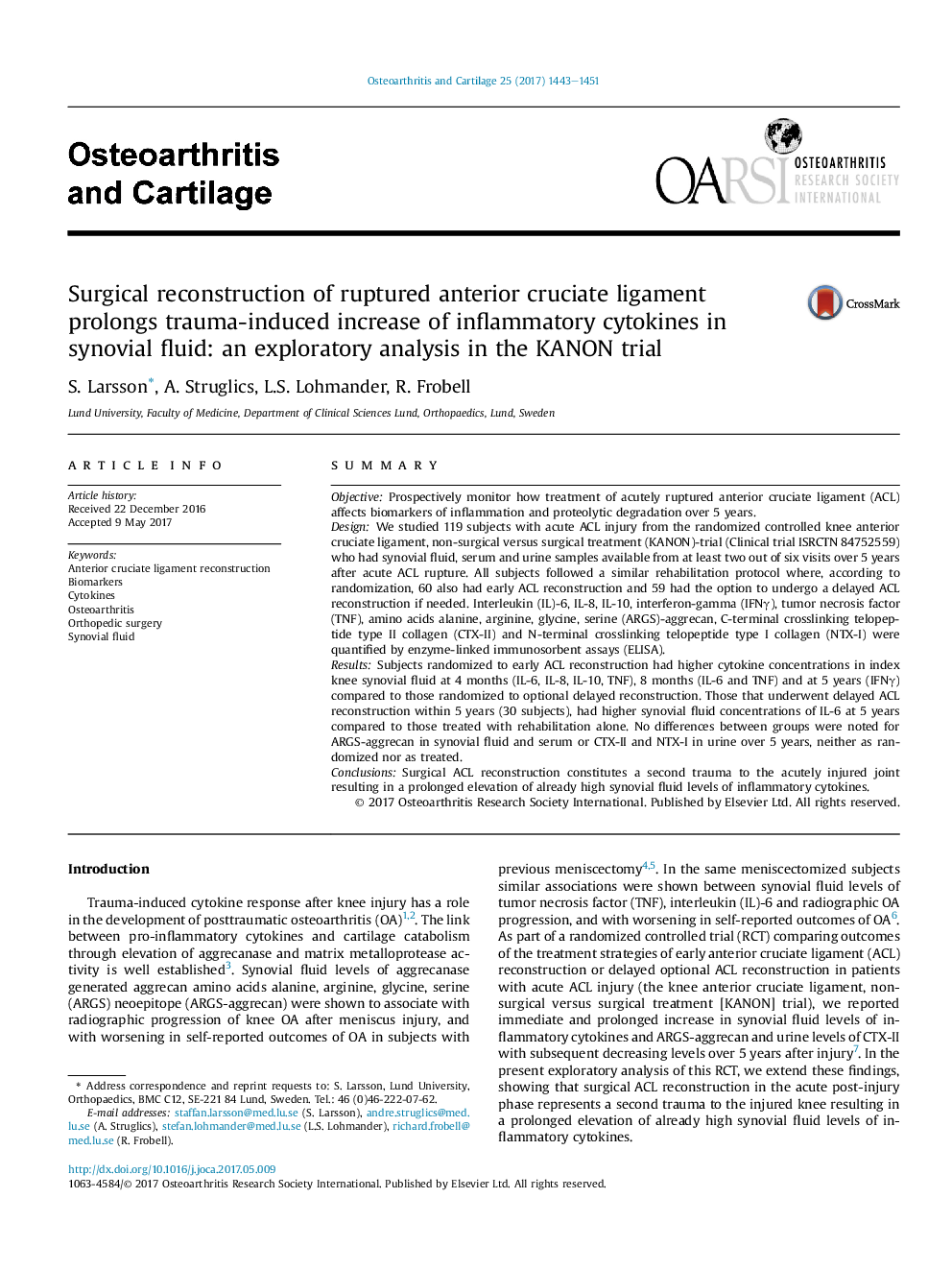| Article ID | Journal | Published Year | Pages | File Type |
|---|---|---|---|---|
| 5669239 | Osteoarthritis and Cartilage | 2017 | 9 Pages |
SummaryObjectiveProspectively monitor how treatment of acutely ruptured anterior cruciate ligament (ACL) affects biomarkers of inflammation and proteolytic degradation over 5 years.DesignWe studied 119 subjects with acute ACL injury from the randomized controlled knee anterior cruciate ligament, non-surgical versus surgical treatment (KANON)-trial (Clinical trial ISRCTN 84752559) who had synovial fluid, serum and urine samples available from at least two out of six visits over 5 years after acute ACL rupture. All subjects followed a similar rehabilitation protocol where, according to randomization, 60 also had early ACL reconstruction and 59 had the option to undergo a delayed ACL reconstruction if needed. Interleukin (IL)-6, IL-8, IL-10, interferon-gamma (IFNγ), tumor necrosis factor (TNF), amino acids alanine, arginine, glycine, serine (ARGS)-aggrecan, C-terminal crosslinking telopeptide type II collagen (CTX-II) and N-terminal crosslinking telopeptide type I collagen (NTX-I) were quantified by enzyme-linked immunosorbent assays (ELISA).ResultsSubjects randomized to early ACL reconstruction had higher cytokine concentrations in index knee synovial fluid at 4 months (IL-6, IL-8, IL-10, TNF), 8 months (IL-6 and TNF) and at 5 years (IFNγ) compared to those randomized to optional delayed reconstruction. Those that underwent delayed ACL reconstruction within 5 years (30 subjects), had higher synovial fluid concentrations of IL-6 at 5 years compared to those treated with rehabilitation alone. No differences between groups were noted for ARGS-aggrecan in synovial fluid and serum or CTX-II and NTX-I in urine over 5 years, neither as randomized nor as treated.ConclusionsSurgical ACL reconstruction constitutes a second trauma to the acutely injured joint resulting in a prolonged elevation of already high synovial fluid levels of inflammatory cytokines.
